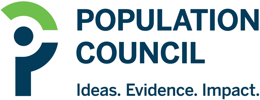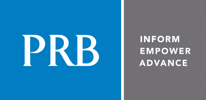
Breakthrough RESEARCH is a five-year cooperative agreement funded by the United States Agency for International Development (USAID) aiming to improve healthy behaviors and norms across key global health areas. The consortium is led by the Population Council in partnership with Avenir Health, ideas42, Institute for Reproductive Health at Georgetown University, Population Reference Bureau, and Tulane University.
Breakthrough RESEARCH is USAID’s flagship social behavior change research and evaluation project and the sister project to Breakthrough ACTION, USAID’s flagship social and behavior change implementation project. Breakthrough RESEARCH is supporting countries to improve health and development by equipping governments, implementing partners, service delivery organizations, and donors with the data and evidence they need to integrate proven and cost-effective social and behavior change approaches into their programs. The following are a sample of resources from each of Breakthrough RESEARCH’s key technical areas and approaches.
Banner Image: Jonathan Torgovnik/Getty Images/Images of Empowerment
Integrated Social and Behavior Change
Integrated social and behavior change (SBC) refers to programming that addresses behaviors concerning multiple health areas or development sectors in a coordinated and intentional way. The Breakthrough RESEARCH integrated SBC portfolio includes evaluation of Breakthrough ACTION’s and other SBC implementing partners’ integrated SBC programs in Zambia, Niger, Nigeria, and Tanzania. Breakthrough RESEARCH has also developed a global Research and Learning Agenda to guide evidence generation to strengthen integrated SBC programs, and has applied these learning questions to an integrated SBC program through development of this Breakthrough Research Spotlight.
- Developing a Social and Behavior Change Research Agenda
- Evidence to Inform an Integrated Social and Behavior Change Strategy in the Sahel
- Generating Evidence to Inform Integrated Social and Behavior Change Programming in Nigeria
- Tackling Pediatric Pneumonia in Nigeria – an Evidence‐based Approach to Programming
- Learning, Evaluating, and Adapting Social and Behavior Change Programming in Zambia
- Social and Behavior Change Research Spotlights
Provider Behavior Change
Provider behavior change (PBC) interventions go beyond clinical training to address provider attitudes, abilities, expectations, and resources available within their environment.
They seek to positively influence provider behavior to improve the quality of services, enhance client experiences, increase demand for services, and increase uptake of commodities or adoption of healthier behaviors. Breakthrough RESEARCH PBC work includes a wide range of approaches and products including applying behavioral economics to improve women’s experience with maternal care in Zambia, understanding provider behaviors as it relates to the identification and treatment of post-partum hemorrhage (PPH) in Malawi and Madagascar, providers and newborn care in Kenya, a landscape analysis of PBC in Ouagadougou Partnership countries, and the development and dissemination of a Research and Learning Agenda to strengthen PBC programs, and application of those findings to a PBC program through development of a BR Research Spotlight.
- Applying Behavioral Economics to Improve Women’s Experience with Maternal Care in Zambia
- Developing a Social and Behavior Change Research Agenda
- Provider Behavior Change Approaches to Improve Family Planning Services in the Ouagadougou Partnership Countries: A Landscape Review
- Evidence Review and Analysis of Provider Behavior Change Opportunities: Literature Review
Costing and Economic Evaluation
Breakthrough RESEARCH is gathering, analyzing, and sharing evidence on the costs and impact of social and behavior change (SBC) interventions to make the case that investing in SBC is crucial for improving health and advancing development.
- Costing and Economic Evaluation
- Exploring Pathways to Social and Behavior Change Impact
- Fostering a Community of Practice for Social and Behavior Change Costing
- Developing Social and Behavior Change Costing Guidelines
- Making the Business Case for Social and Behavior Change in Family Planning
- Creating a Social and Behavior Change Cost Repository
Innovative Approaches to SBC
Breakthrough RESEARCH is conducting mixed methods research to assess successes and challenges of SBC programming, including its effectiveness on priority behaviors and cost-effectiveness. Innovative methods and sources are being deployed, including employing social listening to gain insights from online conversations among youth and taking a unique angle to behavior change by considering the attributes of behaviors themselves for developing SBC programs.
Breakthrough RESEARCH is also mapping family planning (FP) investments, technical approaches, and indicators to identify indicator gaps and make recommendations to governments, donors, researchers, and implementers to improve measurement of SBC activities within the broader FP programmatic landscape. The results of this work can inform how SBC programs are designed, implemented, and evaluated.
- Strengthening Social and Behavior Change Monitoring and Evaluation for Family Planning in Francophone West Africa
- Insights to Improve Social and Behavior Change Programming Through a Focus on the Attributes of Behaviors
- Evidence to Inform Social and Behavior Change for Family Planning in Francophone West Africa
- Informing Social and Behavior Change Programs Using Social Listening and Social Monitoring
- Twelve Recommended SBC Indicators for Family Planning
- Using Routinely Collected Data for Monitoring and Evaluating Social and Behavior Change Programs
Gender and Youth
Integrating gender into social and behavior change (SBC) evidence-generation means recognizing the critical impact of gender norms and inequality on a variety of health outcomes.
It involves examining conceptual frameworks, logic models, indicators, and data from a gender perspective. It also includes identifying and responding to the unique needs of men and women of all ages and abilities, including young men and women and boys and girls. Breakthrough RESEARCH leads the design and implementation of actionable research to expand the evidence base for SBC programming with an explicit focus on gender and gender-based analysis, and youth and youth-friendly programming.
- Evidence from Mass and Digital Media for Family Planning Among West African Youth
- Male Engagement in Family Planning in Togo: Evaluating Couples Counseling Models
- Prioritizing and Targeting SBC Investments for Youth
- Gender Integration in Social and Behavior Change: What Does it Take
- Social Behavior Change and Communication Strategies to Increase Adolescent’s Use of Family Planning in the Philippines
Emerging Infectious Disease
From 2015 to 2019, the United States Agency for International Development and implementing partners worked to control the spread of Zika and to promote Zika prevention behaviors in Latin America and the Caribbean.
As part of this response, Breakthrough ACTION and Breakthrough RESEARCH implemented social and behavior change (SBC) efforts across the region. Led by Tulane University and Population Reference Bureau, Breakthrough RESEARCH developed tools for prioritizing SBC responses to public health emergencies and lessons learned from the Zika SBC response to document this work. Expanding the reach of Breakthrough RESEARCH’s emerging infectious disease portfolio, Avenir Health is now applying their business case for SBC analysis to malaria programs.
Additional resource: Compass Trending Topic, Promoting Social and Behavior Change During the USAID Zika Response
- Lessons Learned for SBC Programming from the USAID Zika Response
- Behavior Prioritization to Improve SBC Programming During a Public Health Emergency: A Call To Action
- Programmatic Implications of Zika-Related Knowledge, Attitudes, and Practices




Date of Publication: April 20, 2022


